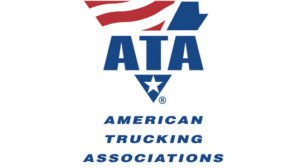ATA Urges Congress to Support Automated Vehicle Development
American Trucking Associations President and CEO Chris Spear testified before the Senate Committee on Commerce, Science, and Transportation about the importance of including commercial vehicles in the discussion about automated vehicles, and urged the Federal government not to stifle innovation.
“I hope my testimony will help unwind some of the myths about automation and our industry,” Spear said in his opening remarks, “and will demonstrate why trucking needs to be at the table as the roadmap for automated vehicles is being written.”
Spear told the Committee that today, the nation depends on more than 3.5 million professional drivers to move more than 70% of goods that are delivered by truck annually—a fact that increased automation is not likely to change. American Trucking Associations is a federation of 50 affiliated state trucking associations and councils. Spear testified on Sept. 13.
“While some people use the terms ‘autonomous’ and ‘driverless’ interchangeably, ATA believes the world of automated vehicles will still have an important role for drivers,” he said. “Just as pilots play a key role in our airline industry, truck drivers will do the same on the ground by leveraging the benefits of automated technology while navigating the cityscapes and handling the customer pickups and deliveries.”
Spear added, “We are at a critical moment in the development of autonomous technology. There are many questions to be answered—including those about cybersecurity, about the impact on trucking operations and how vehicles will interact with one another, and about infrastructure. What is clear is that those questions should be answered for commercial and passenger vehicles at the same time.”
Among several recommendations, Spear also urged the government to set uniform national rules of the road for automated vehicles, but at the same time not to suppress innovation.
“Federal agencies and state governments must commit to supporting innovation for both commercial and passenger vehicles, using existing regulatory exemptions to allow manufacturers and technology companies to test and develop new systems,” he said.
Here is the conclusion from Spear’s testimony:
ATA supports the development of automated vehicle technology for all vehicle types. This technology has the potential for improving safety, the environment, reducing congestion, and saving fuel. While there are concerns about the impact automated technologies will have on the future of work, affected stakeholders should embrace this coming innovation and work together to prepare the workforce to operate with the new technology. Some may see a driverless future, but with the complexity and diversity of the trucking industry, we expect the driver will retain an important role in trucking for a long time to come, with automated truck technology that will improve safety and productivity.
To prepare for the future, federal agencies should begin the work of evaluating the benefits of connected and automated technology on public safety and the economy, and reviewing regulations to see what changes could be made to take advantage of the capabilities that this new technology provides. Preserving a seamless set of safety standards across the country will help to minimize disruptions to the economy and the national supply chain, and support the development of new technology.
Trucking plays a critical role in our economy—keeping the shelves of our local supermarkets fully stocked; delivering life-saving medical supplies to hospitals and clinics; and delivering goods at every stage of production from raw materials to the store shelf—and it should not be left out of any legislation that supports innovation in automated vehicle technology.”
